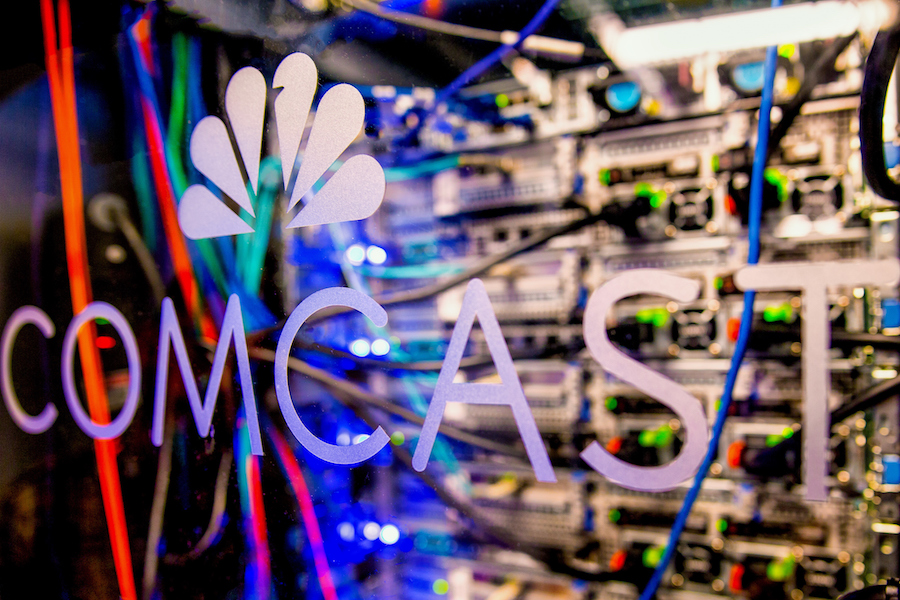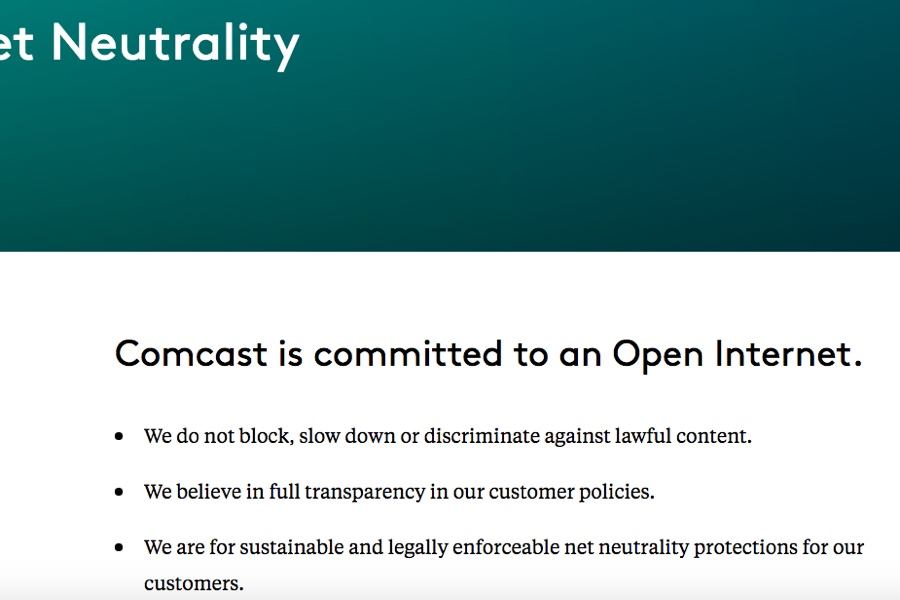With Net Neutrality Gone, Comcast Says It Won’t Block or Slow Your Internet
But with the country's new open internet framework, the broadband provider is free to change its commitments and policies at any time.

Jeff Fusco/AP Images for Comcast
Monday marked the official death of our government’s net neutrality rules, putting an end to a regulated open internet. The rules required broadband providers like Comcast, Verizon and AT&T to treat all web traffic equally — blocking, throttling or discriminating against lawful content was strictly prohibited by the Federal Communications Commission (FCC). Now, with the rules in the past, broadband providers can basically do what they want, really, as long as they’re transparent with the public.
With Monday’s repeal, Comcast — which has long been disseminating blog posts and tweets about its stance on net neutrality — came out in a blog post on Monday to double down on its stated commitment to net neutrality and open internet ideals.
Comcast Cable CEO Dave Watson wrote:
“We still don’t and won’t block, throttle or discriminate against lawful content. We’re still not creating fast lanes. We still don’t have plans to enter into so-called paid prioritization agreements.”
Watson also linked to Comcast’s official Xfinity Internet Broadband Disclosures, which outlines the company’s current policies on blocking, throttling, affiliated prioritization and paid prioritization, among other things.

Comcast’s current net neutrality pledge.
While Comcast says it won’t block or slow content or offer paid prioritization, under the FCC’s new rules, these policies can change at any time as long as Comcast discloses the changed policies on its website or to the FCC.
Some watchers have already noted that Comcast altered its net neutrality pledge in light of the FCC’s new lax rules. In November, Ars Technica reported that Comcast had furtively changed its promises to uphold net neutrality when the FCC announced its initial plan to roll back the rules.
And though analysts argue it’s unlikely broadband providers will start slowing users’ access to select content online, history shows us that the practice of throttling is real.
In 2007, in what is perhaps the country’s most egregious case of throttling web traffic, Comcast was caught slowing the peer-to-peer file-sharing application BitTorrent. The FCC found that Comcast had violated its Internet Policy Statement. But then in 2010, a court ruled in favor of Comcast, saying that the FCC did not have the power to regulate Comcast under its current rules. The court’s decision led the Obama administration to create the first iteration of the Open Internet Order neutrality framework in 2010, which gave birth to the stronger 2015 net neutrality rules that were just repealed on Monday.
Comcast and FCC chairman Ajit Pai have argued that the net neutrality regulations were too restrictive on businesses and prevented broadband providers from network improvements. In December, Comcast senior vice president and chief diversity officer David L. Cohen wrote, “Light touch regulation allows for more competition in the marketplace and increased investment and innovation.”
About two dozen states have sued the FCC to stop the repeal and a number of states have tried to bypass the rollback by writing their own rules or issuing gubernatorial executive orders. A spokesperson for governor Tom Wolf told Philly Mag that Pennsylvania is considering passing an executive order of its own.


